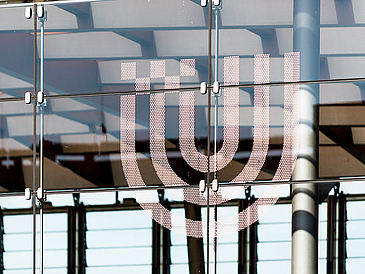The divide between high and low incomes has not increased any further. That is down to the good economic situation and the introduction of minimum wage. However, the study has shown an increasing cleft between secure and unstable working conditions.
Unstable and Secure Types of Employment on a Par
Types of employment that are relatively well paid and are secure constitute 50% of the jobs in the state of Bremen. Of those, 39% belong to the safe middle, which mainly consists of qualified persons with permanent contracts and average income. 11% form the upper middle, of which the majority is made up of permanent employment contracts with above-average income, for example within the manufacturing industries or at banks and insurance companies. A large proportion of 39% do not find themselves in a secure situation. Rather, more than a quarter (26.6%) of employees are in unstable types of employment. 12% hold a precarious job, i.e. an unsecured employment with payment that lies only minimally above the poverty threshold. Therefore, the secure proportion of 39% represents the same amount of people as the secure middle.
When one projects this onto the entire employment structure in the state of Bremen, this means that there are over 110,000 unstable and around 50,000 precarious jobs (calculated on the basis of the yearly average in 2015; source: State Statistical Office of Bremen (Statistisches Landesamt Bremen)/working group for “Statistisches Landesamt “Erwerbstätigenrechnung des Bundes und der Länder”).
Great Differences between Employment Types
“Unstable employment types have mainly increased at the lower end of the distribution scale,” says Dr. Günter Warsewa, director of the Institute for Labor and Economy. In comparison to 2002, the proportion has increased (from 36.8% in 2002 to 38.6% in 2015).
The iaw authors believe that the divide between privileged and unstable employment types will continue to grow. “There will still be a safe middle with normal employment types but it will become smaller because the following generations will split themselves between the unstable and privileged employment types,” explains Günter Warsewa.
The authors see two reasons for the immense differences between the two groups: The employees are better protected in sectors with strong employee representatives and groups with high-demand qualifications are in a better position to enforce their interests. Thus, these groups are able to better deal with possible risks in employment in comparison to those in unstable employment; who must accept greater sacrifices in terms of income and security of employment. The latter group is often comprised of the small-scale self-employed or retail and gastronomy employees.
“Employment conditions have become more diverse in the past decades,” states Günter Warsewa. “Job biographies are more unstable and less plannable. Due to the extent to which federal institutes and companies have shied away from the responsibility to provide permanent, stable jobs, individuals, households, and families must make new and additional efforts to cope with social risks, for example with education and further training, looking for jobs, or retirement plans.”
Further Information:
The study, which was carried out at the request of the Bremen Chamber of Labor and the State Department for Economy, Labor, and Europe, can be downloaded here:
Contact:
Dr. Günter Warsewa
Institute for Labor and Economy
University of Bremen
Phone: +49 (0)421 218-61700
Email: gwarsewaprotect me ?!iaw.uni-bremenprotect me ?!.de
Dr. André Holtrup
Institute for Labor and Economy
University of Bremen
Phone: +49 (0)421 218-61729
Email: aholtrupprotect me ?!iaw.uni-bremenprotect me ?!.de

